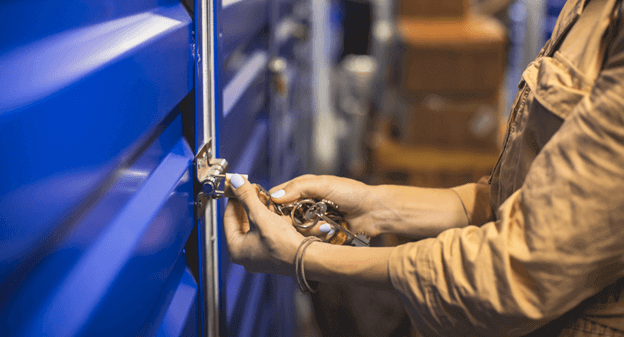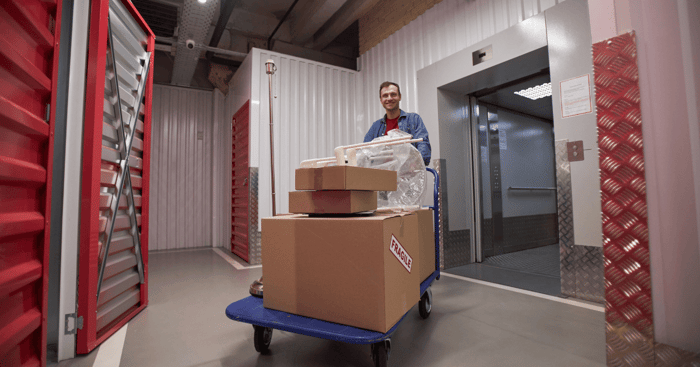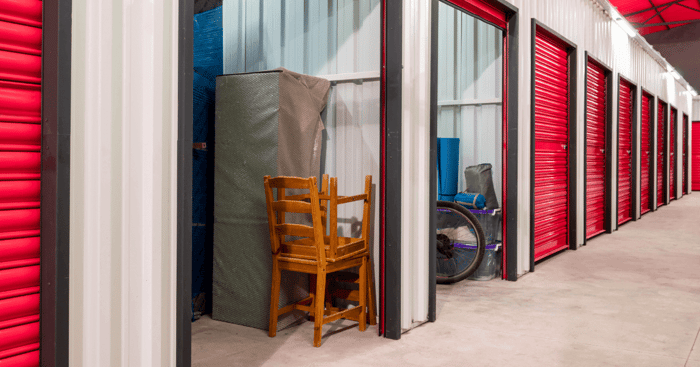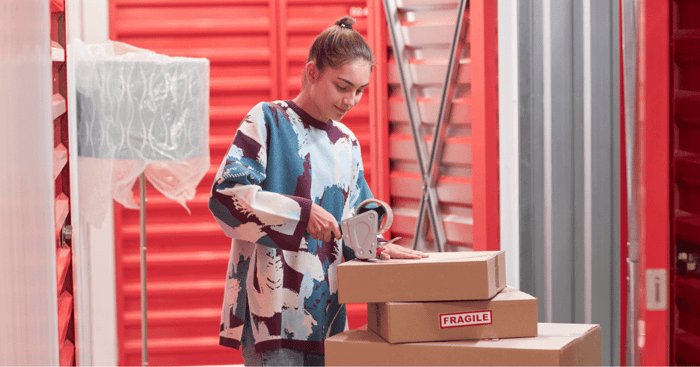
Whether you're moving, downsizing, renovating, or simply decluttering, storing furniture without damage is key to preserving your investment. If done improperly, storage can lead to issues that ruin the value, aesthetics, and longevity of your pieces. From antiques and heirlooms to everyday essentials, this comprehensive guide will walk you through the safest and most effective ways to store furniture, minimizing wear and tear while maximizing your space.
Why Proper Furniture Storage Matters
Furniture isn’t just heavy it’s often expensive and sometimes sentimental. Scratches, mildew, cracks, or warping can happen quickly without the right environment and preparation. That’s why investing in the proper self-storage setup is essential.
Whether you choose climate-controlled storage, drive-up storage, or traditional storage units, a few simple steps can protect your items for months or even years.
Step-by-Step: How to Store Furniture Without Damage
Let’s break it down into manageable steps.
Step 1: Choose the Right Type of Storage Unit
Before boxing up your belongings, decide which type of storage space fits your furniture and situation.
Storage Type | Best For | Key Features |
Climate Controlled Storage | Wood, leather, antiques, electronics | Temperature and humidity regulation |
Drive Up Storage | Bulky furniture, quick access needs | Load/unload directly from your vehicle |
Enclosed Vehicle Storage | Storing RV furniture, van conversions | Covered and secure |
Indoor Secure Storage | Long-term furniture storage | Enhanced protection from external elements |
Tip
Opt for climate-controlled storage if you're storing anything made of leather, wood, or metal, especially in regions with seasonal humidity changes. These units help prevent mold, mildew, rust, and wood warping.
Step 2: Clean Everything Thoroughly
Dirt and moisture are the top culprits behind damage during storage. Always clean furniture before storage.
Wood: Use a wood-safe cleaner and dry cloth. Add a layer of furniture polish or wax to seal moisture.
Upholstery: Vacuum thoroughly. Consider steam cleaning if storing long-term. Let it dry completely to prevent mold.
Leather: Apply a leather conditioner to keep it from drying out or cracking.
Mattresses and Cushions: Use a fabric-safe cleaner and air dry thoroughly.
Don’t Skip This Step
A single crumb or damp spot can lead to mildew or pest issues inside your storage unit.
Step 3: Disassemble When Possible
Disassembling furniture reduces the risk of breakage and saves space in your storage unit.
Disassemble:
Beds (frame, headboard, slats)
Tables (remove legs)
Shelves
Sofas (remove legs and cushions)
Label all parts (screws, bolts, washers) in clearly marked bags and tape them to the underside of the item or store them in a labeled box.
Step 4: Wrap and Protect Each Item
Proper wrapping helps prevent dents, scratches, and dust accumulation.
Plastic wrap: Use for items like tables and chairs (avoid direct contact with leather or wood)
Moving blankets or padded covers: Essential for wooden and upholstered furniture
Mattress covers: Use breathable plastic or cloth covers to avoid moisture buildup
Furniture pads: Add cushioning between stacked items
Avoid wrapping wood or leather furniture in thick plastic for long periods. It can trap moisture and lead to mold or discoloration.
Step 5: Elevate and Position Strategically
Where and how you place your furniture inside a storage space affects how well it holds up.
Use pallets or boards to elevate furniture off the floor to protect against condensation.
Don’t stack heavy items on light ones; avoid crushing delicate items.
Leave gaps for air circulation, especially in non-climate-controlled storage.
Store vertically when safe. Store couches on their ends if necessary, but avoid for long-term storage of soft cushions.
Protect from external pressure. Don’t place boxes or equipment on top of fragile furniture.
Step 6: Use Climate-Controlled Storage When Needed
Furniture is vulnerable to heat, cold, and humidity. That's why climate-controlled storage is the best solution for:
Leather couches and chairs
Wooden dressers, antiques, and pianos
Artwork and mirrors
Electronics integrated into furniture
Any long-term storage
Humidity above 50% can cause swelling in wood and rust in metal. According to the Environmental Protection Agency (EPA), climate-controlled storage helps keep humidity levels ideal for preserving household items.
Common Furniture Storage Mistakes (and How to Avoid Them)
Even experienced movers make missteps. Watch out for these:
Mistake | Why It’s a Problem | Better Solution |
Wrapping wood furniture in plastic | Traps moisture, leading to mold or warping | Use furniture pads or breathable covers |
Storing furniture directly on concrete | Concrete absorbs moisture and can transfer it | Elevate items with pallets or boards |
Overstacking storage units | Causes structural stress and possible breakage | Store heavy items on the bottom and leave room for airflow |
Forgetting pest prevention | Attracts insects or rodents | Use pest-safe units and avoid storing food or scented items |
Not insuring valuable items | No protection in case of accidents or rare events | Choose a storage facility that offers or allows insurance |
How Storage Advantage Can Help
At The Storage Advantage, we understand how important it is to protect your furniture investments. That’s why our facilities are designed with:
Secure storage solutions, including indoor, gated access, and digital surveillance
Flexible unit types, from climate-controlled storage to convenient drive-up storage
Residential and business storage options so that you can store your home, office, or staging furniture
Boat, RV, and vehicle storage, including enclosed and covered options
Helpful onsite staff to support your move-in and answer storage questions
Our variety of storage spaces and flexible rental terms mean you only pay for what you need when you need it.
When to Consider Storage for Furniture
Here are just a few scenarios where furniture storage becomes essential:
Moving or Relocating
Bridge the gap between homes with temporary self-storage that keeps your items safe during the transition.
Downsizing
Home Renovations
Protect furniture from dust, paint, and construction debris with nearby secure storage.
College Students
Moving in and out of dorms each semester? Store beds, desks, and mini fridges with easy-access drive-up storage.
Business Owners
Stage homes or store office furniture with reliable business storage solutions.
Seasonal Tips: Furniture Storage by Season
To tie into seasonally relevant strategies, here’s how to adapt your furniture storage based on the time of year.
Spring/Summer
Use this time to declutter and store unused indoor furniture
Take advantage of dry weather to clean and prep furniture
Fall
Store patio furniture and outdoor equipment
Check weather forecasts and upgrade to climate-controlled storage if sudden temperature shifts are expected.
Winter
Watch for condensation risks
Use insulated or indoor storage to protect from cold or dampness
Frequently Asked Questions
How Much Space Do I Need To Store Furniture?
It depends on how much you’re storing. A 10x10 unit can typically store the contents of a one-bedroom apartment, including couches, a bed, and dining furniture.
Do I Need Insurance For Stored Furniture?
While not always required, insurance is recommended for valuable or irreplaceable pieces. Check with your homeowners or renters policy or ask The Storage Advantage about available options.
Can I Access My Furniture Anytime?
Access varies by location and facility hours. At The Storage Advantage, we offer convenient access hours and flexible arrangements eliminating the need for "24/7" access.
Store Smart, Store Safe
Storing furniture properly is more than stacking and locking a unit. It’s about preparation, protection, and picking the right storage partner.
At The Storage Advantage, we offer dependable storage facilities designed to preserve your furniture through every life change, whether you’re relocating, downsizing, renovating, or simplifying.
Ready to Store Furniture the Smart Way?
Your next step starts here. Visit The Storage Advantage to explore affordable, secure, and convenient storage solutions, including climate-controlled, drive-up, and indoor storage units for your most valuable furniture.
Explore More
Let us help you protect what matters most.






